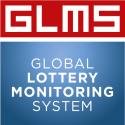Massachusetts Gaming Commission Targets Youth Advertising and Data Privacy in Proposed New Sports Wagering Rules
BOSTON, Massachusetts (July 28, 2023) — The Massachusetts Gaming Commission is in the process of shaping new regulatory standards for sports wagering in Massachusetts, following the state’s adoption last summer of the Massachusetts Sports Wagering Act, Mass. Gen. Laws ch. 23N, which legalized sports betting in the Commonwealth.
Notably, the commission’s proposed new rules include regulations addressing data privacy requirements and sports wagering advertising.
Among other things, the commission’s proposed advertising rules prohibit “advertising, marketing, branding, and other promotional materials … [that] contain images, symbols, celebrity or entertainer endorsements or language designed to appeal primarily to individuals younger than twenty-one years of age.” The proposed rule also prohibits marketing “in media outlets, including social media, video and television platforms, where 25% of the audience is reasonably expected to be under twenty-one years of age, unless adequate controls are in place to prevent the display, dissemination or distribution of such advertising, marketing, branding or other promotional materials to individuals under twenty-one years of age including by use of age category exclusions and similar mechanisms.”
Youth advertising restrictions took effect on an emergency basis on June 30 and are valid through September 30, pending completion of a now-ongoing formal rulemaking process. A public hearing on the permanent version of the regulation is scheduled for August 15.
The commission’s data privacy regulation has not yet taken effect and was the subject of a July 18 public hearing. It places restrictions on the use of bettors’ confidential information and personally identifiable information, including by restricting a sports wagering operator from using such data except as necessary to operate a sports wagering area, facility, or platform, absent the patron’s consent, which “must be clear, conspicuous, and received apart from any other agreement or approval of the patron.” The regulation also prohibits the use of such data “to promote or encourage specific wagers or promotional offers based on … [a]ny computerized algorithm, automated decision-making, machine learning, artificial intelligence, or similar system that is known or reasonably expected to make the gaming or sports wagering platform more addictive.” Additional requirements include a prohibition on sharing data with third-parties except as necessary to operate a sports wagering area, facility, or platform; provisions addressing patron access to collected data and the right to request erasure; and obligations for sports wagering operators to maintain comprehensive data privacy and security policies.
Enforcement is under the purview of the commission’s Investigations and Enforcement Bureau, which may coordinate with the Massachusetts attorney general’s office. Violations of the Massachusetts Sports Wagering Act by licensed operators are subject to a civil penalty not exceeding $2,000 for each violation, or $5,000 for violations arising from the same series of events.
Why It Matters
The commission’s ongoing rulemaking efforts demonstrate that sports wagering operators, who operate or seek to operate in the emerging sports betting market in Massachusetts, will need to contend with a rapidly evolving regulatory landscape, underscoring the need for operators, vendors, and legal practitioners to remain vigilant in ensuring compliance with state laws and regulations.
By:
SOURCE: Troutman Pepper.
Tags: Massachusetts Gaming Commission, Advertising, Sports Wagering Rules
























